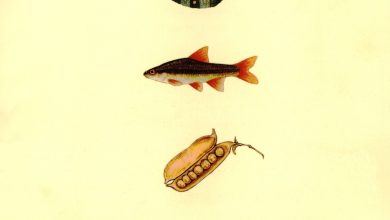Ruthless refers to the protagonist of the story, Judson, who has a severe character flaw. Judson is possessive, tyrannical, and ready to destroy anyone who he believes is meddling with anything that belongs to him.
William de Mille is a playwright, director, and screenwriter. Ruthless stands to be one of his notable works.
Ruthless | Summary
The story is about an unforgiving man named Judson who thinks someone has been drinking his whisky without his permission. It has an ironic finish and a karmic theme. Judson is quite possessive and easily irritated. He poisons the whisky bottle as punishment for the alleged thief. Anyone who tries to come in and steal his whiskey will end up dying from the poisoned liquor. When Judson trips, smashes his head, and loses consciousness, the story abruptly changes. Judson’s neighbor and housekeeper come to his rescue and attempt to help him with a glass of whisky from the poisoned bottle. Due to his head injuries, Judson is unable to think clearly when he drinks the poisoned whisky, and he subsequently dies.
The whole idea of killing a thief by poisoning shocks Mabel, Judson’s wife. She begs him not to carry out the plan. Finally, she gives him the freedom to do anything he wants but decides to tell Alec’s wife about it. Alec, who lives approximately a mile away from the Webbs, is an attendant for the majority of the city residents on vacation. When Judson has an accident on the porch, He collapses and is saved by Alec, who uses a whisky drink to help in his recovery. In Judson Webb’s shabby vacation home in the woods, He unlocks a wall-mounted cabinet that is locked and beyond the reach of even his wife Mabel. Judson loses his temper if his belongings are touched. Mabel was observing Judson, dropping two tablets into the bourbon. Mabel could identify the tone of his voice as “the tone he used when he was planning to ‘put something over’ in business.” He claims that his alcohol has already been stolen, and he expects it to happen again.
When Mabel asks if what he has added will make the thief sick, Judson responds that it will be lethal. It’s horrible—it’s murder, Mabel begs him not to leave the liquor poisoned. Judson confidently argues that shooting a criminal who breaks into his home is not murder and that poison in a locked cabinet cannot harm an innocent person. Mabel debates that the legal penalty for burglary is significantly less severe than death, but Judson asserts that when it comes to his property, he sets his own rules. Despite giving up on the argument, Mabel decides to inform Alec’s wife of the poisoned wine because “someone had to know.” She says Judson can pick her up there later and heads out for the farmhouse down the road. Judson goes inside to grab some boots that he remembered and at that moment only a chipmunk is startled by Judson’s noisy stomping and drops an acorn, which causes Judson to trip and fall unconscious against the table. Alec is supporting him as he wakes up and places a glass to his lips. He speaks kindly, “Here, take this.” After drinking, Judson dies. Alec feeds him the same poisonous liquor that Judson had left for the thief in the hope that it will make him feel better.
Ruthless | Analysis
Ruthless is renowned for its unexpected ending and the writer’s inventive plot twist. Shorter stories, where the reader has less time to become emotionally invested, tend to have extremely effective twist endings. The unforeseen ending of the story makes significant use of situational irony.
Judson accidentally poisons himself while trying to poison someone else. In addition, every step Judson has taken to make sure his trap works as planned has simply made him the target. Mabel departs after being threatened by Judson regarding his authority to poison the thief, thus she is unable to alert Alec about the poison. The fact that Mabel goes to alert someone about the poison so that it does not harm anyone but instead misses the opportunity to tell Alec before the poison kills her husband is also a small element of situational irony. The story also contains a few dramatic ironic moments. Alec is considerate and kind, genuinely trying to help as the reader is aware of the poison while Alec is unaware of it, Alec’s sincere actions are dramatically ironic.
“Ruthless” symbolizes Judson Webb’s readiness, even eagerness, to harm people who intrude on his property.
The locked cabinet, which serves as a representation of his possessiveness and control, is one of the first actual images in the novel. Judson also has a deep need of torturing or perhaps killing someone. He talks to Mabel about it in an almost joyous tone, and the text portrays him being fascinated as he watches the poison dissolve. In his mind, Judson sees himself as a just person seeking revenge on a “rat” or someone who has wronged him. Judson seemed to be ecstatic about the chance to cause harm to people. In the end, Judson’s moral failings are what led to his downfall because they drive the story’s plot. This story works because of the underlying idea that a cruel man’s need for vengeance would ultimately lead to the destruction of his own life. The context of the story emphasizes the idea that evil being punished is the world’s default state. Although “Ruthless” does not specifically state its moral in the text, the story carries a strong lesson. Readers can infer Judson’s wrongdoing from his nasty smile at the idea of poisoning the burglar and Mabel’s disgust at the idea. Judson has numerous opportunities to abandon his plan, but he is steadfast and driven by his fundamental moral failing. His eventual punishment perfectly concludes the parable’s lesson.
There is a third-person omniscient narrator in the story. As the plot develops, the viewpoint switches from being outside the characters to being inside Judson and Mabel’s heads. The poison Judson uses is a metaphor for his heartless outlook on the world. Judson accidentally consumes the poison he had left for someone else as the story comes to an end. This represents how his aggressive, possessive attitude poisons his own life and even prevents his wife from having a genuine conversation with him. All of Judson’s possessions are tightly guarded, and the cabinet represents his obsession with power and ownership. For Judson, the boundaries of this cabinet are a direct challenge to everything he holds dear about himself. Cosmic justice also plays a part in the narrative. Judson simultaneously makes a true statement and unintentionally foreshadows his demise when he tells Mabel not to worry because nobody innocent will be harmed.
Judson is merely a narcissistic businessman, and the subject of excessive materialism has been explored through his personality. He is seen to be so fixated on his things, even seemingly insignificant ones like a bottle of bourbon, that he would kill to keep others from acquiring them. The main theme of the novel is how a person’s desire for vengeance and justice consumes their thoughts and ultimately brings them to downfall. The locked closet, the bourbon, and the rat poison are all symbolic elements used by novelist William de Mille. They stand for various facets of Judson’s character.
Ruthless | Character & Title
The title of the narrative is a reference to the main character, who is described as having a heartless, ruthless personality. Judson, who is shown as a merciless guy, serves as a metaphor for how one need not actually commit murder in order to be labeled wicked; simply having the capacity to do so suffices. He uses a strong voice that is firm. When someone tampers with his stuff, including his wife, he frequently loses control. He is shown to be a man with little to no remorse for anyone. He is an egotist.
Judson’s wife Mabel, who finds it abhorrent that he would kill a stranger, urges Judson to apply reason, common sense, and compassion. Her relations with her husband in the past have taught her that trying to reason with him about his brutal actions is pointless. Friends of the couple, Alec and his wife are in charge of looking after the grounds at Judson’s vacation house. He is a kind man who accidentally kills Judson by feeding him poisoned wine to try to save him after a fall.



